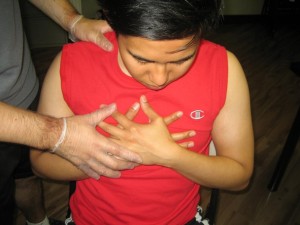Emphysema is a lingering ailment that steadily damages the lungs. The impairment it causes results to difficulty breathing.
The condition typically worsens over months or years which makes it hard for the individual to breathe normally.
How does emphysema develop?
Emphysema develops once the airways are impaired. The damage is typically due to irritation of the lungs over several years. It is important to note that cigarette smoking is one of the usual cause of irritation.
Other causes of irritation in the lungs include:
- Air pollution
Shortness of breath and difficulty breathing are the initial signs. - Exposure to secondhand smoke
- Dust
- Chemical fumes
- Recurrent lung infections
The irritation impairs the air sacs in the lungs. Generally, oxygen enters while inhaling and carbon dioxide is eliminated during exhalation. Once the air sacs are impaired, it is hard to exhale carbon dioxide. As a result, excess carbon dioxide remains in the lungs and there is not enough space for oxygen that the body requires.
What are the signs?
During the initial phases of the disease, there are no symptoms even if the lungs are impaired.
The early signs might include:
- Wheezing
- Shortness of breath and difficulty breathing
- Frequent episodes of coughing
As the condition worsens, the signs might include:
- Weight loss
- Rapid breathing
- Bluish or purplish skin especially the toes, fingers and lips
- Recurrent lung infections
- Engorged ankles, legs and feet
Management of emphysema
Remember that there is no available cure for emphysema, but treatment aims on:
- Alleviating the symptoms to allow the individual to breathe and feel better
- Dealing with any infections
- Helping the individual stay active
- Preventing any complications
For those who smoke, cessation is a vital part of treatment.
The doctor will also prescribe the following drugs:
- Bronchodilators – these drugs work by relaxing the airways to allow easier breathing. The drug is inhaled or taken as pills or in liquid form.
- Steroids – these drugs lessen the swelling within the airways. These drugs are necessary if the symptoms are severe or if the symptoms become persistent. The drug is typically inhaled but also available as a pill.
- Antibiotics – if a bacterial infection is present, this is prescribed by the doctor.

